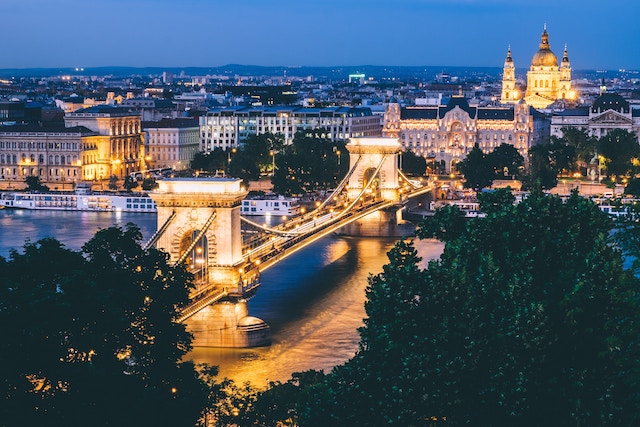Witnessing the Bystander Effect in Budapest

Luxury is a word often associated with vacations. This was true for me when I set off for Europe last July. I knew I wouldn’t be staying at five star hotels or getting any sort of special treatment, but just the opportunity to travel itself felt like a luxury. However, during my travels I had some experiences that were not so luxurious. Although sometimes heartbreaking, through these experiences I learned more about the world and myself than from any schooling I’ve gone through. That’s what happens when traveling: the world becomes your classroom. In psychology, there’s a phenomenon called “the bystander effect.” I watched it happen in Budapest.
The memory that stands out was upsetting, but I’m glad I witnessed it. During my summer in Europe I only spent a day or two in most places, but Budapest was an exception, as I got four days to explore. I realized after just an hour that I was in love with the city, and this love only increased with time. Not only is Budapest beautiful, but unlike many other places I had been in Europe, it is also very affordable. I especially loved the Szechenyi Baths, and had to drag myself away from being treated like a millionaire for hardly any money at all.
when people see someone in need of help, they automatically assume that others will help them, so they don’t have to. The more people there are at a scene where someone needs help, the less likely it is that anyone will help.
I was returning from my beautiful day at the baths. As I got out of my cab, I saw a disabled man collapse across the street. Many people saw and just walked right by. I couldn’t believe it. It didn’t look like the man had much money, he may even have been homeless. He was alone. I approached him as a few more people crowded around. One called an ambulance. Others stared or just walked by. The lack of compassion was disheartening.
Two of the people who had crowded around spoke to each other in Hungarian. I stood by silently, feeling helpless but knowing I couldn’t leave. The ambulance wasn’t arriving. More people stared as they passed by. A woman finally turned to me and said: “Why are you still here? You don’t need to stay.” I said that although I’m not from Budapest and although I don’t speak Hungarian, I know that when someone gets hurt you stick around to make sure they’re okay. She smiled and commended me.
Check out Pink Pangea’s Writing, Yoga, and Meditation Retreats.
An hour passed and still no ambulance. I was shocked. What if this man didn’t make it? In New York, an ambulance would have arrived within minutes. I realized then how spoiled I was. The minutes continued to melt away in the heat and I wondered if an ambulance would ever show up. The man who had called for help earlier called again, reiterating the urgency of the situation. Still no ambulance appeared. Maybe a half hour later, two cops materialized from down the street. They stopped to take in the situation. I was told by several people that the cops would take care of everything. I stayed a few minutes anyway, to make sure the man was getting help.
I don’t know how things ended, or what was wrong with the man who collapsed. But I will always remember the encounter. I see the bystander effect happening a lot in day-to-day life. It’s the idea that when people see someone in need of help, they automatically assume that others will help them, so they don’t have to. The more people there are at a scene where someone needs help, the less likely it is that anyone will help. What I witnessed in Budapest was a case of the bystander effect in action. But kindness and compassion should be a universal concept. If you don’t help those around you, you’re part of the problem.









This is very serious. My mother told me about her experience, when she was the only one to help out a pregnant woman who had collapsed in a metro in Japan. People were running over her! Luckily, she was able to call her then-boyfriend (my dad), who was studying medicine, to arrive and help out. The lady was very grateful.
Unfortunately, this is an issue that is more common than people realize. Everyone who walks past just assumes someone else will help. I’m so grateful that you wrote this article. Thank you for informing everyone about this important problem.